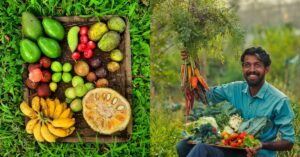Behind The Scenes: How This 102-YO Farm Became Kerala’s 1st Carbon Neutral Farm
Kerala’s State Seed Farm in Aluva will be declared carbon neutral by Chief Minister Pinarayi Vijayan. The team behind the feat detail the modules they have followed to achieve this status.
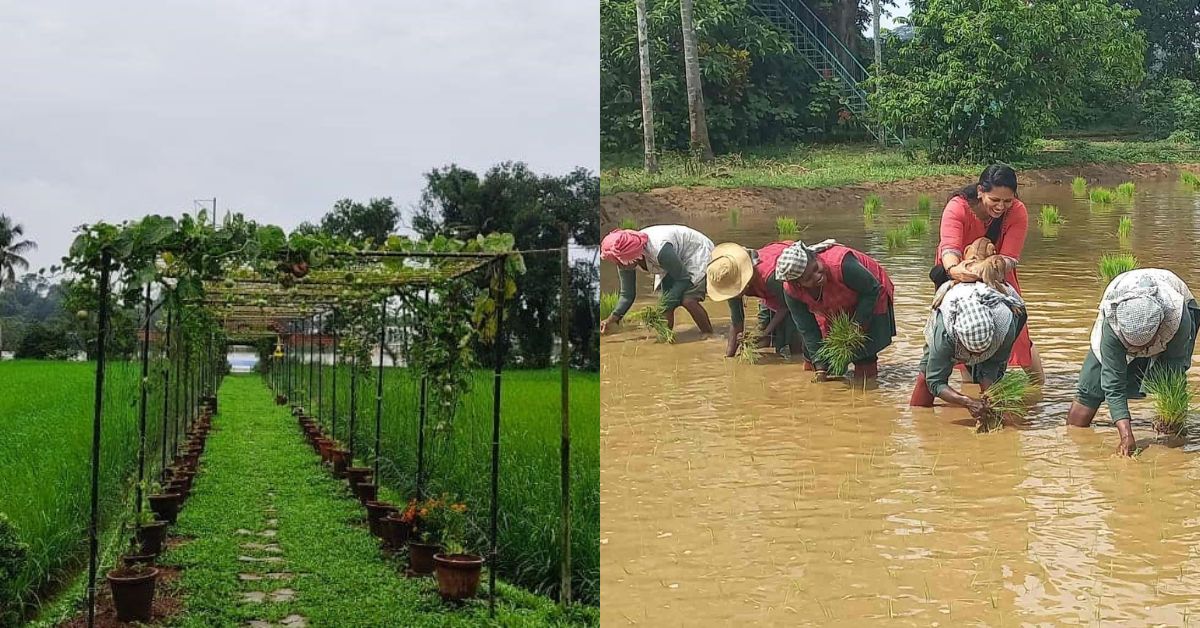
On December 10, Kerala’s State Seed Farm in Aluva will be declared carbon neutral by Chief Minister Pinarayi Vijayan. As per officials, this is the first seed farm in the country to achieve a carbon neutral status.
The 102-year-old farm is located on Thuruth Island in the Periyar River and has been an organic seed farm since 2012. It has since been taking steps to reduce its carbon emissions, and this decade of efforts has resulted in it achieving carbon neutrality.
Studies were underway since August this year to assess its carbon footprint. Officials from the Kerala Agricultural University College of Climate Change and Environmental Science said that the farm had 43 tonnes of carbon emissions and 213 tonnes of carbon storage.
This makes the farm carbon neutral as well as carbon negative.
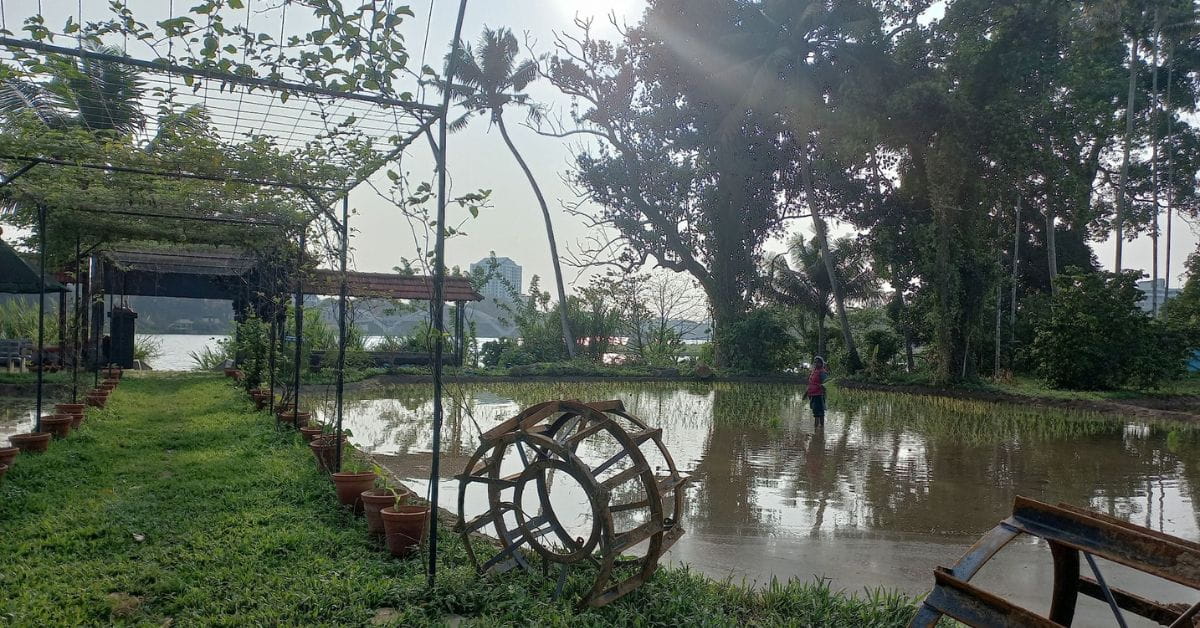
One of the persons behind the farm’s achievements is Lissymol J Vadakuttu, assistant director of agriculture at State Seed Farm Aluva.
She says that the results show that they have carbon credits. “We are not just carbon neutral, we are carbon negative. We have 170 tonnes of carbon credits, which can be sold in the future to those who require them,” says Vadakuttu.
What’s carbon neutral farming?
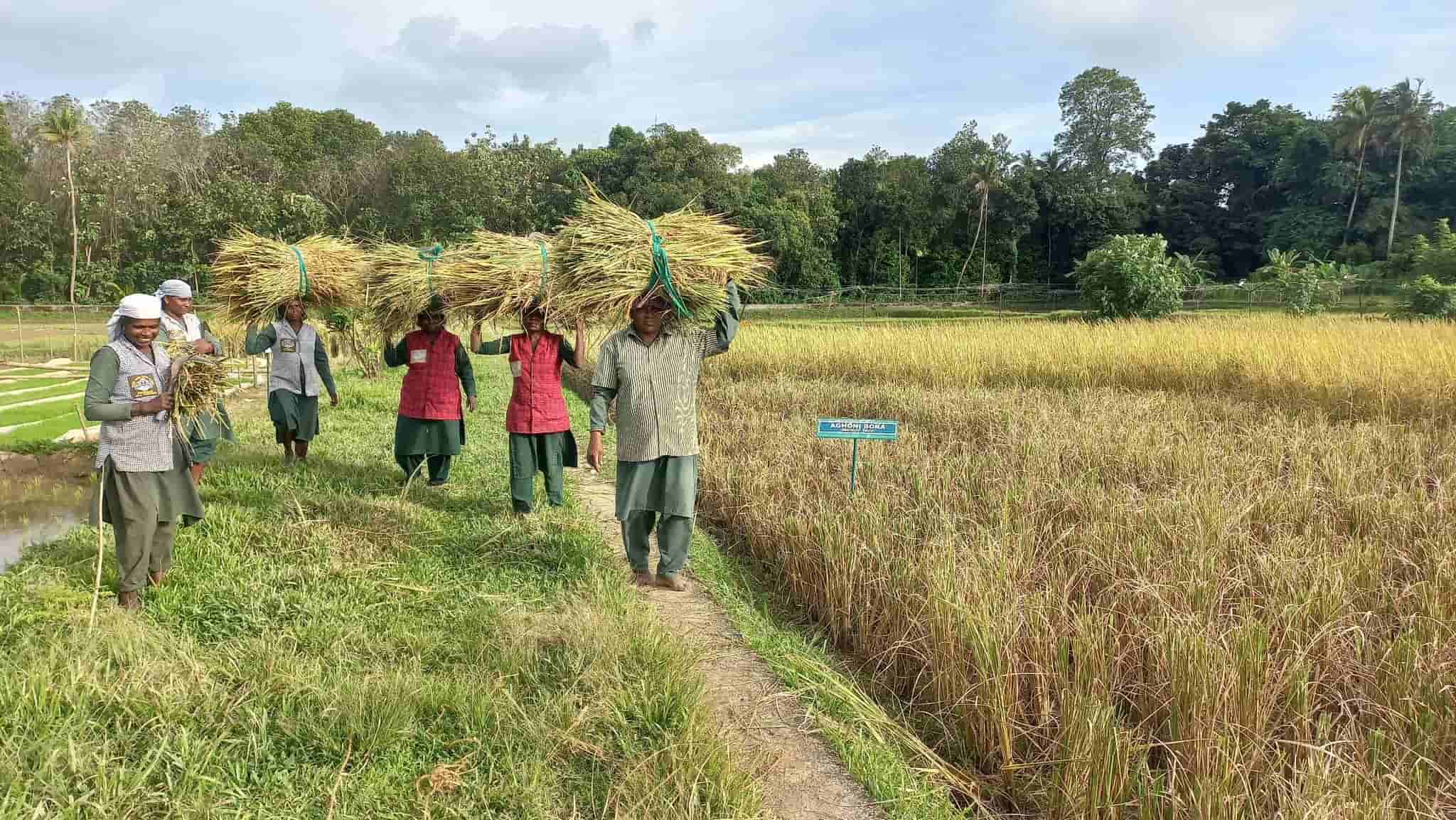
Agricultural practices emit a lot of carbon dioxide .According to a report in Science News, agriculture and livestock account for 14 per cent of India’s gross national greenhouse gas emissions. If we add electricity used by the agriculture sector, the number stands at a whopping 22 per cent.
Basically, carbon neutral farming means that the emissions made during agricultural practices in a farm must be absorbed into the soil itself.
Vadakuttu explains that the first step was using organic agricultural activities, then came efforts to improve soil health, followed by intercropping systems and proper waste disposal.
“A farm is carbon neutral when the quantity of carbon dioxide and other greenhouse gases is captured in the soil. For this, soil has to be of good quality and captured by microbes. As we were organic for a decade, the next steps became easy for us,” explains Vadakuttu to The Better India.
The officer got the soil analysed periodically, and in the process, the soil microbial status was also tested.
Producing inputs in-house to reduce emissions
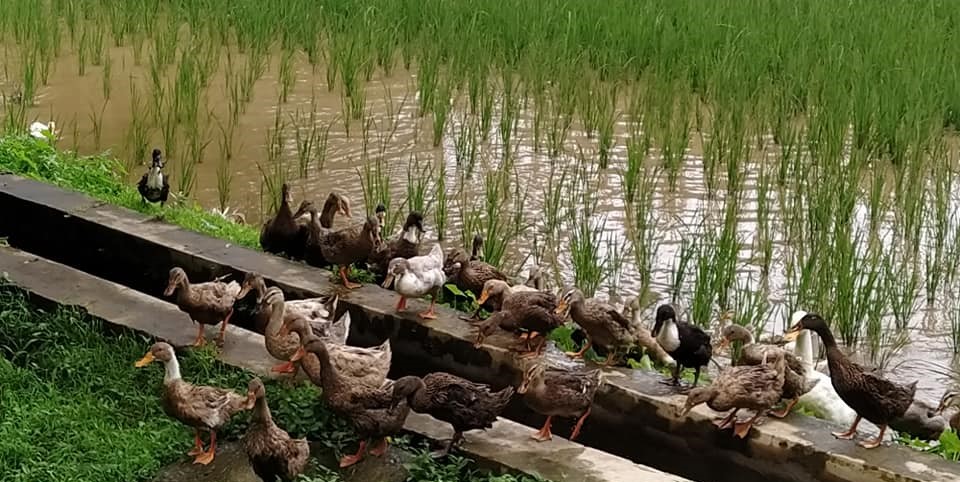
The farm practises an integrated farming system where crops are grown alongside livestock, poultry and fish. Apart from paddy varieties, they have indigenous breeds of cows (Kasargod), goats (Malabar), ducks (Kuttanadan), and fish, which provide manure to the farm.
Vadakuttu says they have about 5,000 fish, 100 ducks and 50 poultry.
“We produce all inputs required here itself. Crop residue is converted into compost and used to fertilise the fields. Ducks are very helpful in paddy cultivation. They move in the water and control pests and diseases,” adds Vadakuttu.
She explains that they only buy lime as Kerala soil is acidic. “Other than this component, everything used in the farm is recycled,” says the officer.
Their main crop is paddy, which is cultivated on seven acres.
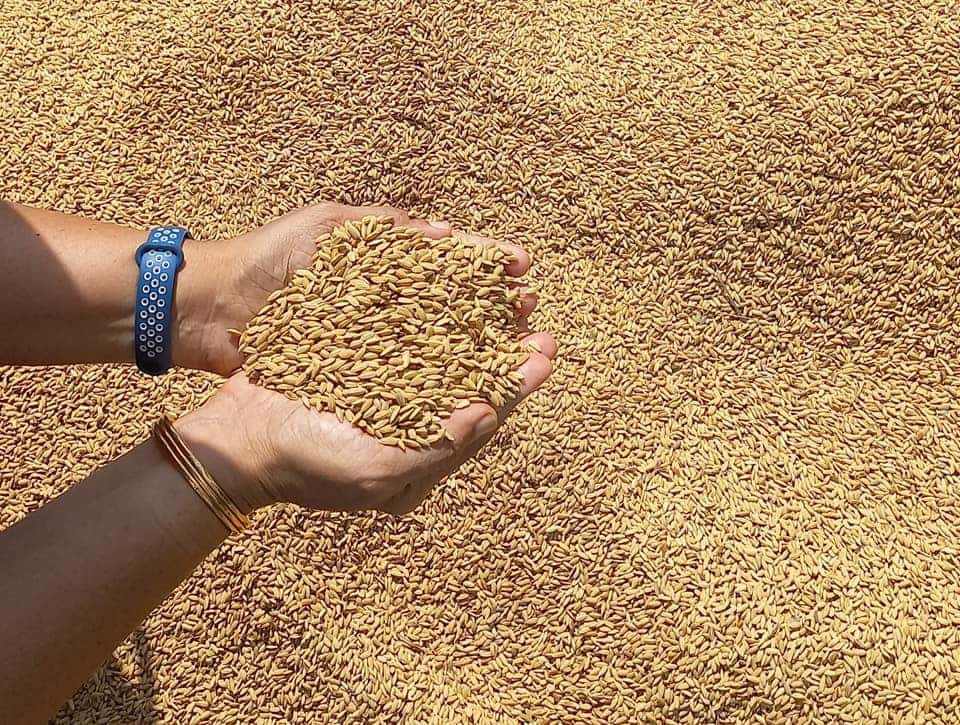
Apart from the high yielding variety, they also cultivate traditional Kerala varieties and provide these seeds to the farmers. These include Raktasaali, Njavara, Pokkali, Chettadi, etc.
“We have also started cultivating a traditional magic rice that can be cooked without a flame since last year,” adds the officer.
Another step taken to reduce emissions is usage of renewable energy, in this case solar. If you found our stories insightful, informative, or even just enjoyable, we invite you to consider making a voluntary payment to support the work we do at The Better India. Your contribution helps us continue producing quality content that educates, inspires, and drives positive change. Choose one of the payment options below for your contribution- By paying for the stories you value, you directly contribute to sustaining our efforts focused on making a difference in the world. Together, let’s ensure that impactful stories continue to be told and shared, enriching lives and communities alike. Thank you for your support. Here are some frequently asked questions you might find helpful to know why you are contributing?

“Whatever energy was required in our office, has been converted to solar energy. We have also established a solar dryer to dry our paddy seeds. We want to make our farm self-sufficient in terms of energy. Now, we are installing solar panels to meet all other requirements of the farm like irrigation and processing,” adds Vadakuttu.
Edited by Divya Sethu, Images Courtesy State Seed Farm, Aluva
Sources
‘Farmers in India cut their carbon footprint with trees and solar power’ by Sibi Arasu for Science News, Published on 16 May 2022
This story made me
-
97
-
121
-
89
-
167




